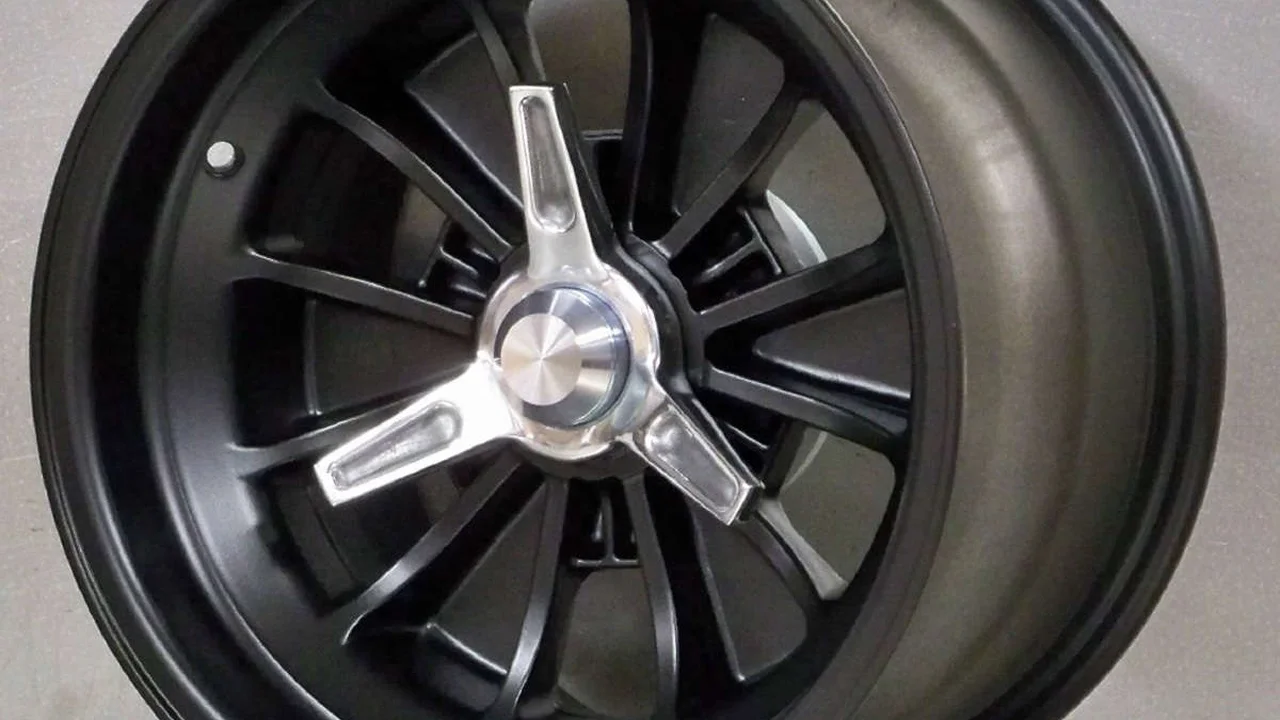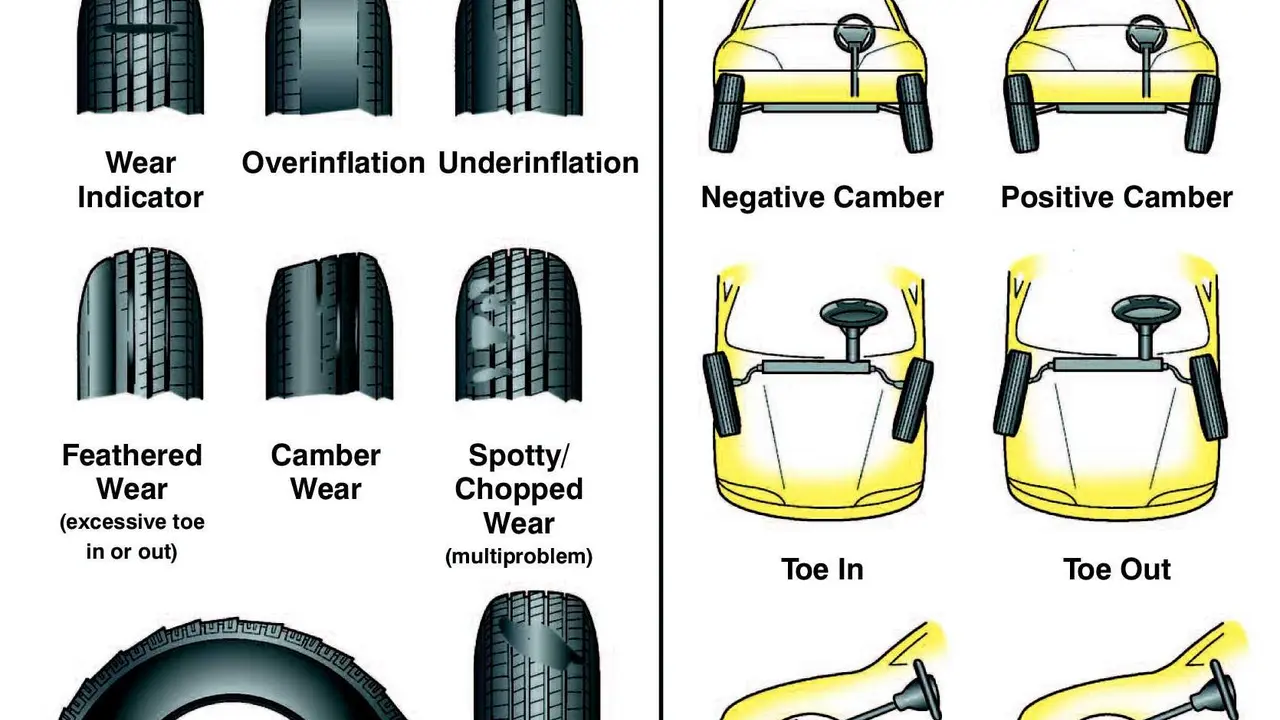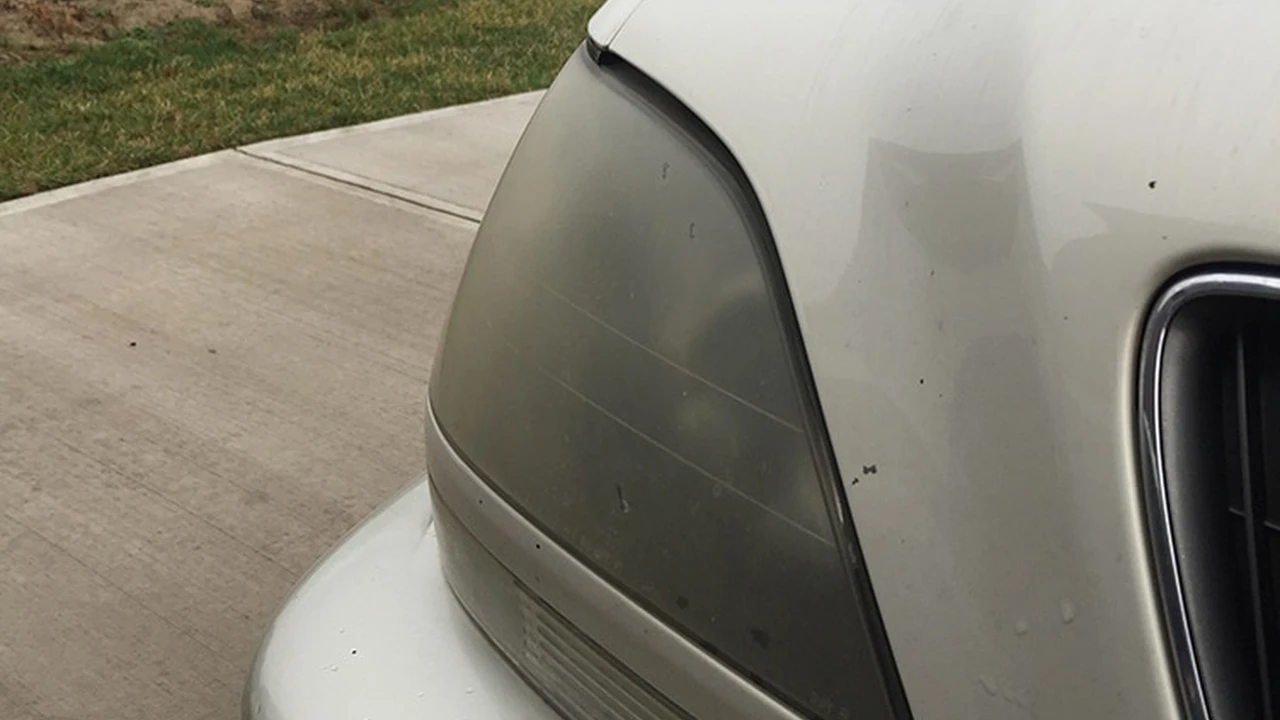Best 5 Wheel Styles for Classic Cars
Enhance the classic look of your vintage car with stylish wheels. We explore options for restoring and enhancing classic vehicles. Give your classic car a fresh new look with vintage-inspired wheels.

Why Upgrade Wheels on Your Classic Car? Performance, Style and Value
Okay, so you've got a classic ride. Maybe it's a '67 Mustang, a '57 Chevy, or a vintage BMW. It's beautiful, iconic, and definitely turns heads. But let's be real, those original wheels? They might be showing their age. Upgrading the wheels on your classic car isn't just about aesthetics; it's about breathing new life into a legend. We're talking improved performance, a killer look, and potentially even boosting its value.
Think about it: modern wheels can offer better handling, improved braking performance (especially when paired with modern tires), and a smoother ride. Plus, let's face it, a fresh set of wheels can completely transform the look of your classic, taking it from "old-timer" to "timeless cool."
Classic Wheel Styles: A Throwback with a Modern Twist
When choosing wheels for your classic, you want to respect the car's heritage while injecting a bit of modern flair. Here are five killer styles that perfectly blend vintage charm with contemporary performance:
1. Wire Wheels: Timeless Elegance and Vintage Charm
Wire wheels are the epitome of classic elegance. They were hugely popular on luxury cars from the 1930s to the 1960s. Their intricate design and shiny finish add a touch of sophistication that's hard to beat. Think Jaguar E-Types, classic Rolls-Royces, and even some early Mustangs rocking these beauties.
Pros:
- Iconic vintage look
- Adds a touch of luxury and elegance
- Available in various sizes and finishes
Cons:
- Can be more expensive than other options
- May require specialized maintenance
- Can be heavier than modern alloy wheels
Product Recommendation: Dayton Wire Wheels. They're a reputable brand known for their high-quality wire wheels designed specifically for classic cars. Expect to pay anywhere from $500 to $1500 per wheel, depending on size and complexity.
2. Rally Wheels: Sporty Aggression and Racing Heritage
Rally wheels are all about performance and a sporty vibe. Often seen on classic muscle cars and rally cars, they feature a simple, robust design that's both functional and stylish. Think classic Camaros, Mustangs, and even some vintage Porsches sporting this look.
Pros:
- Sporty and aggressive look
- Durable and functional design
- Good balance of performance and aesthetics
Cons:
- May not be as visually striking as other options
- Can look a bit too "plain" for some classic cars
- Limited finish options compared to other styles
Product Recommendation: US Wheel Rally Wheels. They offer a wide range of rally wheels in various sizes and finishes, perfect for restoring that classic muscle car look. Prices typically range from $200 to $500 per wheel.
3. Steel Wheels with Hubcaps: Nostalgic Simplicity and Original Look
Steel wheels with hubcaps are the ultimate in nostalgic simplicity. This was the standard setup on most cars from the 1950s to the 1970s. The hubcaps add a touch of style while retaining the original look of the car. Think classic VW Beetles, early Ford Falcons, and even some vintage Cadillacs rolling on these.
Pros:
- Authentic vintage look
- Affordable and readily available
- Easy to maintain
Cons:
- Not the most performance-oriented option
- Limited style options
- Can be prone to rust if not properly maintained
Product Recommendation: Coker Tire offers a wide selection of steel wheels and hubcaps for classic cars, ensuring you get the correct size and style for your vehicle. Expect to pay around $100 to $300 per wheel and hubcap combination.
4. Torq Thrust Wheels: Iconic Muscle Car Style and Aggressive Stance
Torq Thrust wheels are an iconic muscle car staple. Their five-spoke design and aggressive stance instantly transform any classic into a street machine. These wheels scream power and performance. Think classic Corvettes, Camaros, and Mustangs looking mean with these on.
Pros:
- Classic muscle car look
- Aggressive and sporty appearance
- Available in various sizes and finishes
Cons:
- Can be a bit overused on some classic cars
- May not be suitable for all classic car styles
- Can be more expensive than other options
Product Recommendation: American Racing Torq Thrust wheels are the gold standard. They offer a variety of sizes, finishes, and offsets to perfectly fit your classic. Prices range from $300 to $800 per wheel.
5. Minilite Wheels: British Racing Heritage and Lightweight Performance
Minilite wheels are a classic British racing wheel design. Their lightweight construction and distinctive eight-spoke design make them perfect for improving handling and performance. Think classic Minis, MGs, and Lotus cars looking agile and sporty with these wheels.
Pros:
- Lightweight for improved performance
- Classic British racing look
- Adds a touch of sportiness and agility
Cons:
- May not be suitable for all classic car styles
- Can be more expensive than other options
- Limited size options compared to other styles
Product Recommendation: Compomotive Minilite wheels are a popular choice for classic British cars. They offer a range of sizes and offsets to ensure a perfect fit. Expect to pay around $400 to $900 per wheel.
Choosing the Right Size and Fitment: Offset, Backspacing and Bolt Pattern
Getting the right size and fitment is crucial. You can't just slap any wheel on your classic and hope for the best. You need to consider offset, backspacing, and bolt pattern to ensure the wheels fit properly and don't cause any rubbing or clearance issues.
- Offset: The distance between the wheel's mounting surface and its centerline.
- Backspacing: The distance from the wheel's mounting surface to the inner edge of the wheel.
- Bolt Pattern: The number and spacing of the wheel's mounting studs.
Consult a wheel specialist or use an online fitment guide to determine the correct specifications for your car. Incorrect fitment can lead to handling problems, tire wear, and even damage to your car's suspension.
Materials Matter: Alloy vs Steel Wheels Considerations
Classic cars originally came with steel wheels. But, alloy wheels are a popular upgrade for their lighter weight and enhanced performance. Let's break down the key differences:
Alloy Wheels Benefits for Classic Cars
- Lighter Weight: Alloy wheels are significantly lighter than steel wheels, improving handling, acceleration, and braking.
- Heat Dissipation: Alloy wheels dissipate heat better than steel wheels, reducing brake fade and improving braking performance.
- Aesthetics: Alloy wheels offer a wider range of styles and finishes compared to steel wheels.
Steel Wheels Benefits for Classic Cars
- Authenticity: Steel wheels retain the original look and feel of the car.
- Durability: Steel wheels are generally more durable than alloy wheels, especially in harsh conditions.
- Cost: Steel wheels are typically more affordable than alloy wheels.
The best choice depends on your priorities. If performance is your main goal, alloy wheels are the way to go. If you want to maintain the original look and feel of your car, stick with steel wheels.
Tire Considerations: Size, Type and Sidewall Profile
Choosing the right tires is just as important as choosing the right wheels. Consider the tire size, type, and sidewall profile to achieve the desired look and performance. Lower profile tires can improve handling but may compromise ride comfort. Wider tires can improve grip but may cause rubbing issues.
For classic cars, many owners opt for tires with a taller sidewall profile to maintain a vintage look and improve ride comfort. Consult a tire specialist to determine the best tire size and type for your car and driving style.
Where to Buy Classic Car Wheels: Online Retailers and Local Shops
You can find classic car wheels from a variety of sources, including online retailers and local shops. Online retailers offer a wider selection and competitive prices, but you won't be able to physically inspect the wheels before buying them. Local shops offer personalized service and expert advice, but their prices may be higher.
Some popular online retailers for classic car wheels include:
- Summit Racing Equipment: Offers a wide range of wheels and tires for classic cars.
- Jegs High Performance: Another popular retailer with a vast selection of wheels and tires.
- Eckler's Classic Chevy: Specializes in parts and accessories for classic Chevrolets.
- Coker Tire: A leading supplier of tires and wheels for classic cars.
Don't hesitate to visit local tire and wheel shops to get expert advice and see the wheels in person before making a purchase.
Installation Tips: Professional Installation vs DIY Wheel Mounting
Installing new wheels can be a DIY project, but it requires the right tools and knowledge. If you're not comfortable working on cars, it's best to have the wheels installed by a professional. A professional installation will ensure that the wheels are properly mounted, balanced, and aligned.
If you decide to install the wheels yourself, make sure to use a torque wrench to tighten the lug nuts to the correct specification. Over-tightening the lug nuts can damage the wheels and studs, while under-tightening them can cause the wheels to come loose.
Cost Considerations: Budgeting for Classic Car Wheels Upgrade
The cost of upgrading wheels on your classic car can vary widely depending on the style, size, and brand of the wheels. Steel wheels are typically the most affordable option, while wire wheels and custom alloy wheels can be quite expensive.
Factor in the cost of tires, installation, and any necessary modifications to your car's suspension. Set a budget before you start shopping and stick to it. Don't be afraid to shop around and compare prices from different retailers.
Maintaining Your Classic Car Wheels: Cleaning and Polishing Tips
Proper maintenance is essential to keep your classic car wheels looking their best. Clean the wheels regularly with a mild soap and water solution. Avoid using harsh chemicals or abrasive cleaners, as they can damage the finish.
For alloy wheels, use a wheel polish to remove oxidation and restore the shine. For steel wheels, apply a coat of wax to protect them from rust. Inspect the wheels regularly for any signs of damage, such as cracks or dents.
Classic Car Wheel Styles: The Final Verdict
Upgrading the wheels on your classic car is a fantastic way to enhance its style, performance, and value. By choosing the right wheels and tires, you can breathe new life into a legend and enjoy the thrill of driving a classic that looks and performs its best. From wire wheels exuding timeless elegance to Torq Thrust wheels screaming muscle car aggression, the options are endless. So, do your research, choose wisely, and get ready to turn heads wherever you go!
:max_bytes(150000):strip_icc()/277019-baked-pork-chops-with-cream-of-mushroom-soup-DDMFS-beauty-4x3-BG-7505-5762b731cf30447d9cbbbbbf387beafa.jpg)






